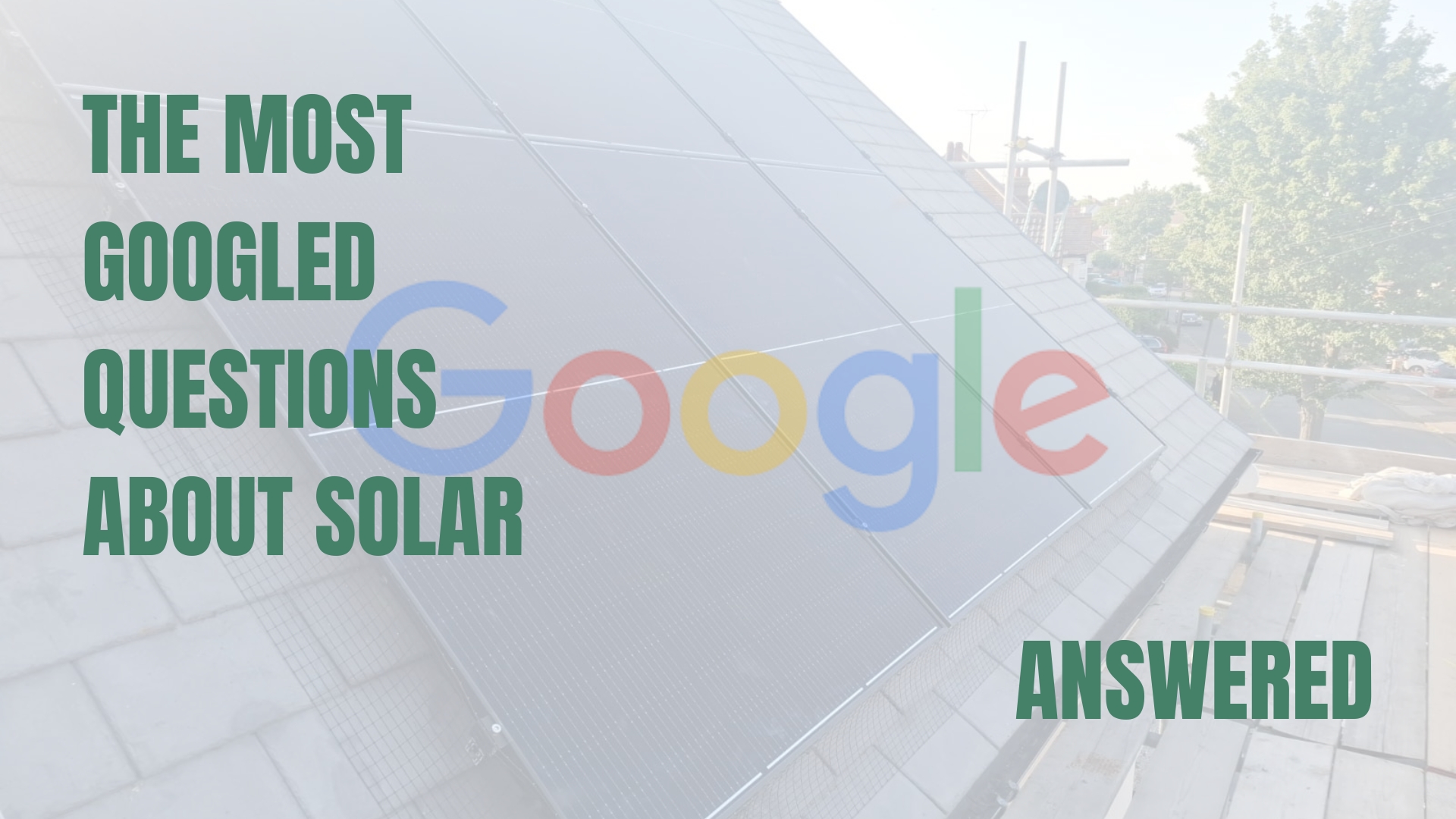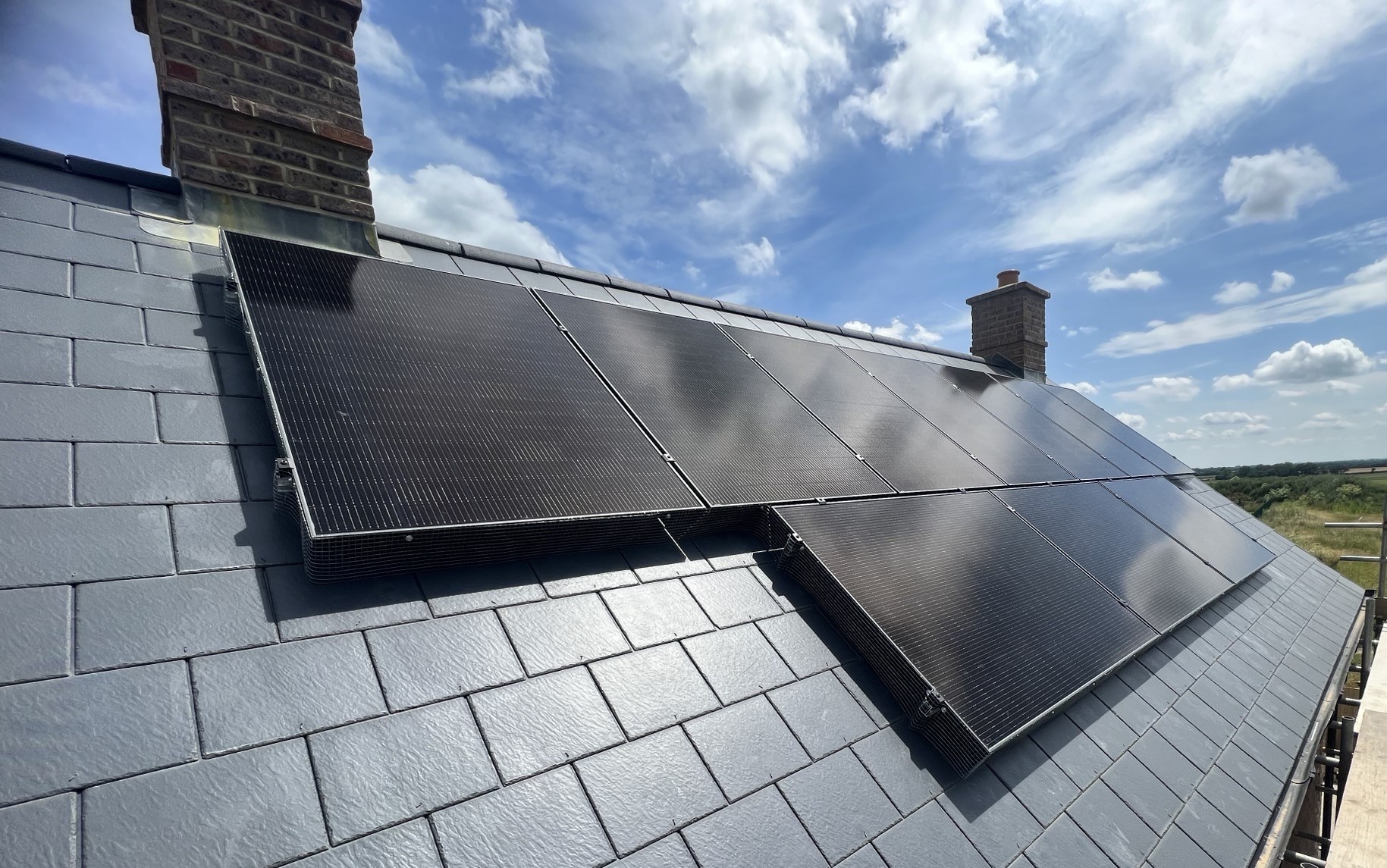When it comes to solar energy, curiosity is sky-high. Every month, thousands of people turn to Google with questions about how solar panels work, what they cost, and whether they’re really worth it. From the basics of renewable power to the finer details of installation and savings, the internet is buzzing with interest. In this article, we’ll uncover the most Googled solar questions and provide clear, straightforward answers to help you decide if solar is the right choice for your home or business.
How Do Solar Panels Work?
Solar panels have grown in popularity over the last decade, as homeowners look to save on energy bills and take back control of their power. Solar panels consist of photovoltaic cells made from layers of silicon and metal conductors. When sunlight hits these cells, the electrons in the silicon move and create an electrical current. The electricity generated is in the form of direct current (DC) and is converted into usable alternate current (AC) electricity by a solar inverter.
How Much Do Solar Panels Cost?
The cost of a solar PV installation varies depending on the type and size of the system installed. A standard 4kWp system costs between £6,000 and £7,500. Adding in a solar battery, EV charger or hot water diverter can increase your initial costs. Most standard solar PV systems see a return on investment within 10 years, with some seeing a return in as little as 6 years. At SolarTherm UK, we don’t believe in a one size fits all solar system, we custom design your solar PV system for your property, usage and future energy needs. Use our Solar Calculator to find out what size system you need.
How Long Do Solar Panels Last?
Most modern solar panels come with a 25 year warranty with most generating electricity efficiently well over the 30 year mark. Solar panels degradation happens at a rate of around 0.5% per year, meaning even after 20 years, a solar panel is still working at 80% of its starting efficiency. At SolarTherm UK, we use Bovill.tech, 410W all black solar panels that come with an industry leading 99-year product warranty.
Many factors can affect the lifespan of a solar panel, but regular maintenance and cleaning help expand the lifespan of your solar panels. Choosing the right installer can also affect the lifespan of your solar panels. Choose an installer that is MCS-certified to ensure the highest quality products are used and that your installer is suitably qualified to carry out your installation to UK safety standards.
Why Are Solar Panels Not Worth It?
Despite the many benefits of solar panels, it is important to know the shortfalls, so you can make an informed decision on whether solar is right for you.
Weather and climate dependence – clouds, seasonal variations and obstructions like trees and nearby buildings can cause your solar panels to generate less electricity. However, there are ways to overcome these problems, like installing microinverters or power optimisers to overcome shading, and solar panels require sunlight to generate electricity, not heat, so even on a mild, light cloud day, your panels can still generate a significant amount of electricity.
High upfront costs – while solar panels have dropped in price over the last decade by over 80%, a solar PV installation can still set you back over £6,000 initially. At SolarTherm UK, we offer finance options and give EPVS verified quotes with accurate performance and return estimates.
Low energy usage – if you have low electricity usage, you may not see a significant decrease in your energy bills. At SolarTherm UK, we will always let you know if solar doesn’t make financial sense for you.
How Do You Get Free Solar Panels From the Government?
There are currently no government grant schemes open to everyone in the South East for solar panels. The only scheme that is currently running is the ECO4 scheme, which is run through the energy suppliers. To qualify for ECO4 you need to be in receipt of a state benefit or have a serious health condition and have an EPC (Energy Performance Certificate) rating of D or below. Even if you qualify for funding through ECO4, you may not get the full cost of your installation, or the supplier may recommend other forms of energy efficiency upgrades, such as insulation or boiler upgrades.
How Many Solar Panels Do I Need?
The amount of solar panels needed will vary depending on your property size, available space and energy usage. At SolarTherm UK, we analyse your energy usage past and present, ask if you have any plans to install any high energy upgrades to your property in the future (such as an EV or heat pump) and ask about your lifestyle. From this information, we design a solar PV system that optimises efficiency while keeping costs as low as possible.
How to Clean Solar Panels?
Solar panels that are covered in dirt or debris have a reduced efficiency and output. The majority of dust and dirt will be cleared by the frequent rainfall we experience in the UK, but sometimes a simple clean will be required. Cleaning is relatively simple, try running a hose along the panels to remove dirt, use a soft cloth or sponge to clean stubborn areas. Avoid using harsh chemicals or materials that can cause permanent damage to your solar panels. If you are unable to reach your solar panels to clean them, you can employ a professional to carry out it out who will have specialist equipment to work at heights or reach awkward areas.
How Efficient Are Solar Panels?
Most modern monocrystalline solar panels have an efficiency of 20-22%. While this doesn’t sound much, it is plenty to keep a home powered for the day with a well-designed system. Even on cloudy days, modern solar panels can generate electricity.
The future of solar has seen perovskite panels reaching efficiencies over 25%, and while these are not on the market for residential solar, early tests are positive and at SolarTherm UK, we hope they will be available in the future.
What are Solar Panels Made Of?
Solar panels are made from photovoltaic cells, created from a mixture of silicon and metal conductors. In addition to silicon, solar panels comprise other essential components such as a metal frame and tempered glass encapsulation. Different types of solar panels have different manufacturing processes and components.
What are the Benefits of Solar Panels?
One of the most significant searches on google is why solar panels are beneficial.
Job creation – the solar industry is growing and supporting jobs in the local economy. Going solar can help support local jobs and boost your community.
Financial savings – by installing solar panels, you can see a reduction in your energy bills up to 70% annually.
Environmental benefits – solar panels are a clean, renewable energy source and can reduce your carbon footprint by up to one tonne per year.
Increased home value – solar panels can increase the value of your home by up to 4%, and almost 60% of UK buyers say they would pay more for a property with sustainable energy installed.
Energy independence – by generating your own free electricity, you reduce your reliance on expensive grid energy, taking back control of your energy future.
The benefits of going solar are undeniable. Solar panels save you money, save the planet and create jobs, by harnessing the power of the sun, you can pave the way for a greener, brighter future.
When Were Solar Panels Invented?
The history of solar panels goes back to the early 19th Century when the solar cell was first discovered by French physicist Edmond Becquerel. The first solar panel was invented by Charles Fritts, an American inventor who coated a thin layer of selenium with a thin layer of gold to produce an electrical conversion efficiency of around 1%. The 1980s saw solar panels becoming more efficient and affordable, with an efficiency of around 4% and start being used on a larger scale across America and Europe. Compare this to today’s modern solar panels with an efficiency of 20% or higher, the evolution of solar has seen significant developments in essentially a short period of time.
How do Solar Panels Work with Your Electricity Bill?
Solar panels are a great way to reduce your electricity bill. The amount you save depends on multiple factors, including system size, self-consumption and whether you have battery storage. By generating your own free electricity you reduce your reliance on expensive grid electricity. Any surplus electricity can also be sold back to the grid earning you additional income through the Smart Export Guarantee (SEG).
Solar energy has come a long way, from its early beginnings to the highly efficient and accessible systems we have today. Whether you’re curious about costs, efficiency, installation, or the environmental benefits, the questions people ask most about solar reveal one thing clearly: interest in clean, renewable energy is growing every day. By understanding how solar panels work, what they cost, and how they can benefit your home or business, you can make an informed decision that saves money, reduces your carbon footprint, and gives you greater control over your energy future.
At SolarTherm UK, we’re here to guide you every step of the way, helping you harness the power of the sun with confidence. Contact us today for a free no obligation quote and design, tailored for your property, usage and future energy needs. No hard sell, just honest, expert advice.
Your home. Your energy. Your future.





